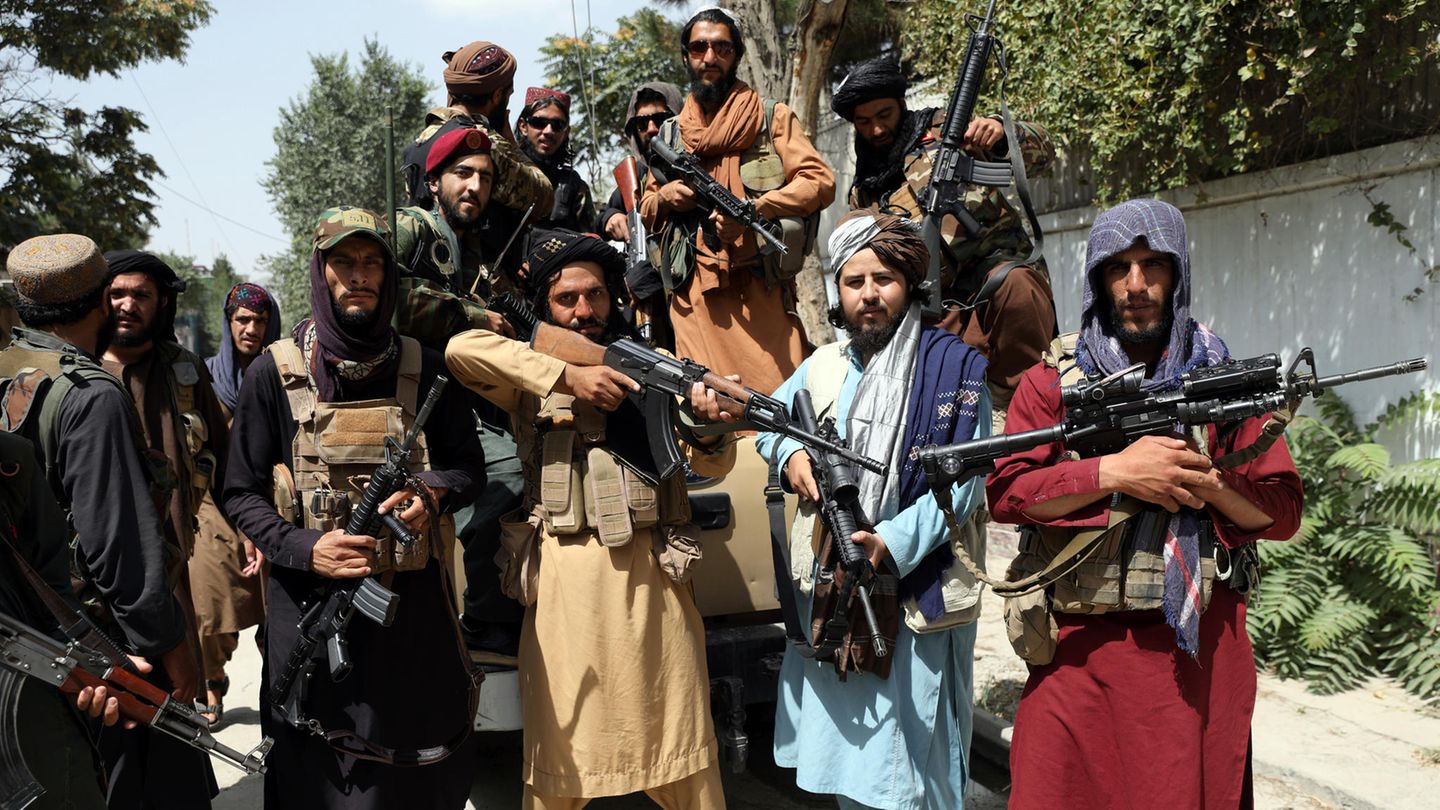At first glance, the West is the big loser in the change of power in Kabul. The Taliban are likely to be interested in aid and goods. While China and Turkey are hoping for more leverage, the situation for India is extremely tricky.
The upheaval in Afghanistan came suddenly, and its consequences for the local people are dramatic. In terms of foreign policy, after the hectic rescue operations of these days, the question will arise for many states: What next for this country, in which a militant Islamist group is now deciding on the reality of life for millions of people? Is cooperation possible or is the isolation of Afghanistan announced in the global concert of powers?
While the US wants to get away from the Hindu Kush quickly, China and Turkey are pondering more influence in the region. For India, meanwhile, the change of power could prove to be a severe blow to global influence.
An overview of the Afghanistan interests of the most influential powers:
USA
The United States is currently engaged in its evacuation mission and the failure debate. Further plans for the future handling of the new Taliban regime are not yet being discussed publicly. The US State Department spokesman said it was in contact with other governments to coordinate how to deal with the developing situation.
US President Joe Biden has announced that he will continue to campaign “for the fundamental rights of the Afghan people”, in particular he mentioned the rights of women and girls. He left it open how the engagement of the USA, which no longer has any influence over the new rulers in Kabul, should look like in concrete terms.
Russia
In Moscow, the Taliban are banned as a terrorist organization. Nevertheless, there were official negotiations with representatives of the militant Islamists in Moscow as well. Foreign Minister Sergei Lavrov said Taliban political forces were being spoken to, but not terrorists. He left it open whether Russia would recognize the new leadership in Kabul. The Russian ambassador in Kabul, Dmitri Zhirnov, met with Taliban representatives this week and spoke of constructive talks. The embassy continues to work.
However, even in retrospect of its 20-year war in Afghanistan during the Soviet era, Russia is acting with wait and see. Moscow assures support above all to the Central Asian states concerned for their security – above all Tajikistan and Uzbekistan. In Tajikistan, Russia took part in maneuvers this summer to ward off a possible invasion of the Taliban. Russia also wants to prevent the USA from setting up military bases in Central Asia. Moscow sees the region as its sphere of influence even 30 years after the collapse of the Soviet Union.
China
The regime in Beijing is looking for stability in Afghanistan and wants to prevent the neighboring country from becoming a breeding ground for terrorism. Otherwise it fears negative effects on the neighboring, Muslim-populated region of Xinjiang in northwest China or projects of its infrastructure initiative of the “New Silk Road” in Central Asia or Pakistan. China had already come to terms with the Taliban before they took power in Kabul.
Foreign Minister Wang Yi gave a high-ranking Taliban delegation a grand reception on July 28th in Tianjin and diplomatically upgraded the warriors of God. China will not interfere in Afghanistan, Wang Yi promised. But the Taliban must “clearly” break with all terrorist groups and separatists who are fighting in Xinjiang for the independence of the former East Turkestan.
Taliban co-founder Mullah Abdul Ghani Baradar called China a “trustworthy friend”. He hoped Beijing could play an important role in rebuilding Afghanistan. In contrast to the USA and Russia, China can appear in Afghanistan as a player without a burdensome warlike past. As a financially strong regional power, permanent member with veto rights in the UN Security Council, friend of the Russians and rival of the USA, China could become an important cooperation partner for the Taliban who does not want to impose any other political system on them.
Iran
The ultra-conservative government of President Ebrahim Raisi is still unsure whether it should be happy about the change of power in the neighboring country or not. Although the archenemy of the USA is out of the neighborhood for the time being, the militant Islamist Taliban as successors were not really wanted either. Raisi hopes for a national agreement within the framework of internal negotiations between the Afghan groups in order to continue the cooperation. For observers, more wishful thinking than strategic consideration.
For many in Iran, the Taliban are still Islamist Sunnis, for whom Shiite Iran is and will remain a religious archenemy. In view of the chaotic conditions in Afghanistan, economic cooperation is also unrealistic, at least in the short term. There is concern about a wave of refugees like the one in 1979 after the Soviet invasion of Afghanistan. Iran could hardly cope with such a situation at the moment because of the acute economic crisis and the corona pandemic.
If
Like the government in New Delhi will stand by a Taliban government in the future is currently unclear. So far, the country has had good relations with Afghanistan, and over the past 20 years around three billion dollars have been invested in development aid projects. These large investments in the old government are now likely to be in jeopardy. China’s archenemy Pakistan, in which the Taliban are also active, is likely to have a stronger role in Afghanistan – which in turn could increase the risk of terrorism in the Indian-Pakistani border region of Kashmir.
India also has tense relations with its other neighbor, China, and since the People’s Republic is likely to play a greater role in Afghanistan in the future, India’s geopolitical situation in South Asia is now rather bad.
Turkey
The government in Ankara has been adopting a Taliban-friendly tone not only since it came to power. Turkish President Recep Tayyip Erdogan has already repeatedly declared his readiness to receive Taliban leaders. One has nothing against the belief of the Taliban, said Erdogan of the state news agency Anadolu. Help Afghanistan in good times and bad.
Before the Taliban came to power, there was much discussion about the extent to which Turkey could continue to secure the international airport after the end of the NATO mission. Ankara has shown and is ready to do so. Analysts rated this as an attempt by the largely isolated country in terms of foreign policy to improve relations with the USA and other countries and to expand its influence in the region. How the country could try to realize this interest under the new circumstances is still open. For years, many refugees from Afghanistan have been coming to Turkey via Iran. In the past few weeks, the news from Afghanistan has often provoked anti-refugee rhetoric among the population. The opposition in the country uses the topic to create a mood against Erdogan.
David William is a talented author who has made a name for himself in the world of writing. He is a professional author who writes on a wide range of topics, from general interest to opinion news. David is currently working as a writer at 24 hours worlds where he brings his unique perspective and in-depth research to his articles, making them both informative and engaging.




